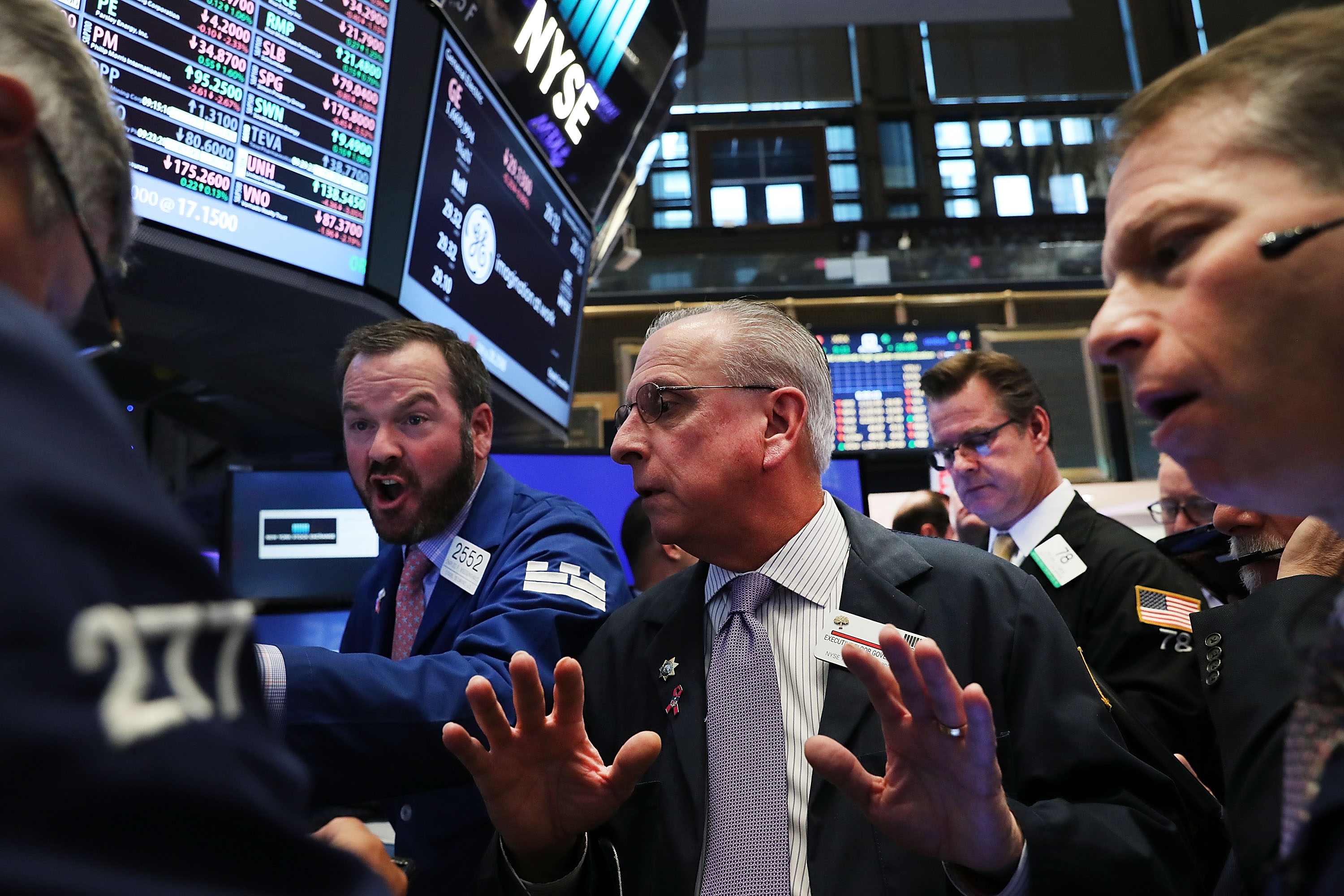What will the Trump economy look like?
For now, investors appear happy to focus on Trump's pro-growth policies and to ignore his positions on free trade

A free daily email with the biggest news stories of the day – and the best features from TheWeek.com
You are now subscribed
Your newsletter sign-up was successful
The smartest insight and analysis, from all perspectives, rounded up from around the web:
Donald Trump winning the White House was supposed to trigger a financial panic, said James Stewart at The New York Times. As Election Day approached, most Wall Street analysts predicted "dire consequences for financial markets" in the case of an improbable Trump victory. The world's biggest hedge fund, Bridgewater Associates, went so far as to warn clients that the Dow Jones industrial average would fall 2,000 points if Trump claimed the presidency. Yet not only did Trump win, but U.S. stocks rallied, with the Dow Jones hitting a record high two days after the vote. Looks like we can add Wall Street's brain trust "to the long list of pundits who called the election all wrong."
It appears investors expect a tamer Trump presidency than advertised, said Neil Irwin, also at The New York Times. For now, markets are ignoring Trump's campaign promises to renegotiate or abandon free trade deals — moves that would risk "ripping apart the economic underpinnings of the U.S. auto industry" and other sectors. The same goes for Trump's pledge to deport millions of undocumented immigrants, which would upend the operations of firms relying on that labor, especially in the agriculture and services industries. Instead, investors appear happy to focus on Trump's pro-growth policies — cutting taxes, slashing business regulations, and spending on infrastructure. "If this platform seems familiar, that is because it is," said The Economist. Tax cuts and financial deregulation were central to George W. Bush's agenda. Clearly, investors hope Trump's nativist policies on trade will quietly fall by the wayside and that he will become "Bush 3.0."
The Week
Escape your echo chamber. Get the facts behind the news, plus analysis from multiple perspectives.

Sign up for The Week's Free Newsletters
From our morning news briefing to a weekly Good News Newsletter, get the best of The Week delivered directly to your inbox.
From our morning news briefing to a weekly Good News Newsletter, get the best of The Week delivered directly to your inbox.
"That's why the stock-market boom that has greeted the president-elect is important," said Holman W. Jenkins Jr. at The Wall Street Journal. Hopefully, it will encourage Trump to embrace his pro-growth instincts and not his "retributive ones," such as starting a trade war with China or dictating to U.S. companies like Ford where they can build factories. Making it easier for firms to do business, along with a simplified tax code, should do wonders for the economy. "Grab that low-hanging fruit, Mr. Trump." But businesses can't ignore for much longer what Trump has actually promised: "wholesale upheavals of existing policies," said Robert Samuelson at The Washington Post. Trump has vowed to rewrite the rules on everything from trade to health care, and he has provided few, if any, details about how he plans to proceed. Until companies know more, they will hold back on investment and spending. Economists know this much: "Uncertainty hurts growth."
"Global investors, at least for now, seem persuaded that we don't face a sudden, sharp economic disaster," said Adam Davidson at The New Yorker. The bad news is that markets are terrible at predicting long-term threats. Case in point: There were plenty of signs that the economy was in trouble during the run-up to the financial crisis, but markets kept chugging along as if everything were normal — until it was too late. So the best we can do is to not forget that Trump's proposed policies will have far-reaching, unpredictable economic consequences. "The future is, literally, inconceivable to us now."
A free daily email with the biggest news stories of the day – and the best features from TheWeek.com